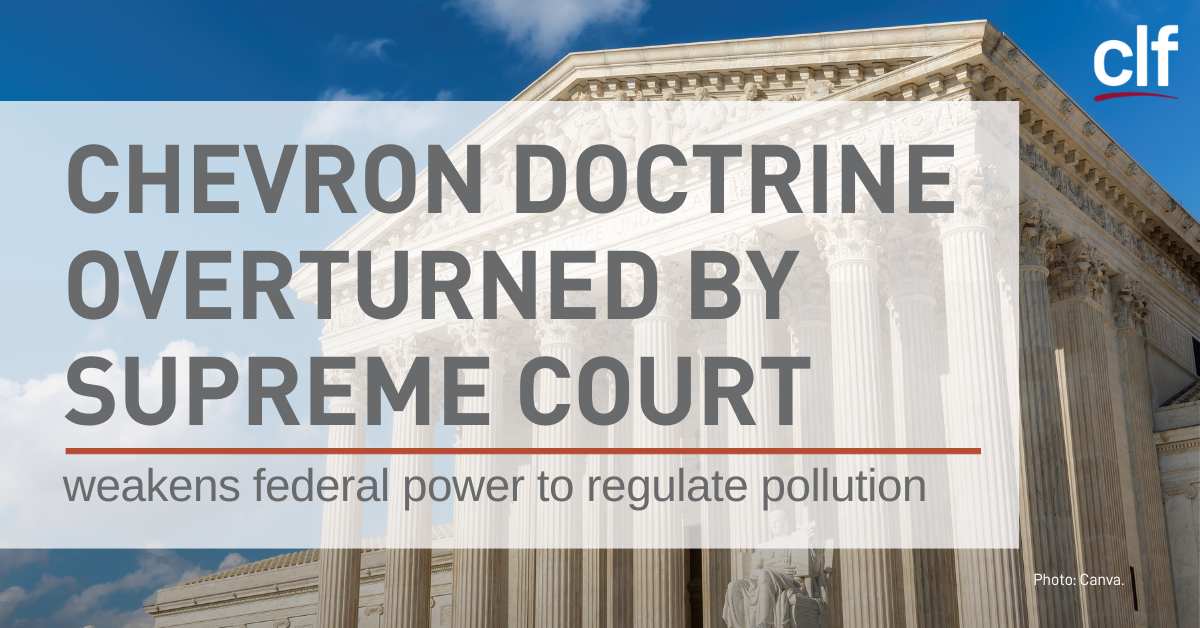Supreme Court Ruling: Implications for Administrative Law

The Supreme Court’s decision to overrule the Chevron doctrine has significant implications for administrative law. Chevron deference, established in 1984, granted courts substantial deference to agency interpretations of statutes. This doctrine has been a cornerstone of administrative law, allowing agencies to exercise significant authority in implementing and enforcing laws.
Deference to Agency Interpretations
The overruling of Chevron doctrine means that courts will no longer be required to defer to agency interpretations of statutes unless those interpretations are based on a “clear and persuasive” reading of the statute. This shift in deference will likely result in courts taking a more active role in reviewing agency actions, potentially limiting the authority of agencies to interpret and enforce laws.
Balance of Power
The overruling of Chevron doctrine also affects the balance of power between the judiciary and administrative agencies. By reducing the deference given to agencies, the Court has strengthened the role of the judiciary in interpreting and enforcing laws. This shift could lead to increased judicial oversight of agency actions, potentially constraining the ability of agencies to implement and enforce policies.
Impact on Agency Rulemaking and Enforcement

Supreme court overrules chevron doctrine – The Chevron doctrine has played a significant role in agency rulemaking, providing a framework for courts to defer to agencies’ interpretations of their own regulations. With the overruling of Chevron, the landscape of agency rulemaking and enforcement is likely to change.
Agencies’ Ability to Issue and Enforce Regulations
The overruling of Chevron may make it more difficult for agencies to issue and enforce regulations. Without the presumption of deference, courts may be more likely to scrutinize agency interpretations of their regulations, potentially leading to more challenges to agency actions.
This could have significant implications for businesses and individuals subject to agency regulation. Increased uncertainty regarding the validity of agency regulations could make it more difficult for businesses to comply with the law and could lead to more litigation.
Implications for Statutory Interpretation and Judicial Review: Supreme Court Overrules Chevron Doctrine
The traditional approach to statutory interpretation under Chevron deference involved a two-step analysis. First, courts would determine whether the statute was ambiguous. If the statute was unambiguous, the court would defer to the agency’s interpretation. If the statute was ambiguous, the court would defer to the agency’s interpretation if it was reasonable.
In the absence of Chevron deference, courts are likely to adopt a more searching approach to statutory interpretation. Courts will be more likely to find statutes ambiguous and, therefore, more likely to reject agency interpretations. This could lead to a decrease in the power of agencies to interpret statutes and implement their programs.
Implications for the Scope of Judicial Review, Supreme court overrules chevron doctrine
The absence of Chevron deference could also have implications for the scope of judicial review of agency actions. Courts are more likely to overturn agency actions if they find that the agency’s interpretation of the statute is unreasonable. This could lead to an increase in the number of agency actions that are overturned by courts.
The Supreme Court’s recent overturning of the Chevron doctrine has sent shockwaves through the legal community. This landmark ruling has significant implications for the way courts interpret agency regulations. While the implications of this decision are still being debated, it is clear that the Court’s decision will have a lasting impact on the relationship between the judiciary and the executive branch.
Like the bold and striking lines of a tartan pattern , the Court’s ruling has drawn clear boundaries between the powers of each branch, ensuring that the balance of power remains intact.
The Supreme Court’s recent decision to overrule the Chevron doctrine, which had granted deference to agency interpretations of ambiguous statutes, has significant implications. The Chevron decision, established in 1984 , had long been criticized for giving too much power to agencies and limiting judicial review.
The Supreme Court’s decision to overrule Chevron restores a more balanced approach to statutory interpretation, ensuring that both agencies and courts play a role in interpreting the law.
The Supreme Court recently overruled the Chevron doctrine, a landmark decision that had given deference to agencies’ interpretations of ambiguous statutes. This ruling has significant implications for the balance of power between the courts and administrative agencies. For more information on the Chevron decision, visit the chevron decision.
The Supreme Court’s decision to overturn Chevron is a major shift in the way that courts will review agency actions, and it is likely to have a significant impact on the way that agencies regulate businesses and individuals.
The Supreme Court’s recent overturning of the Chevron doctrine has sent shockwaves through the legal community. This landmark ruling, known as overturned chevron , has significant implications for the relationship between the courts and administrative agencies.
The Supreme Court’s recent decision to overturn the Chevron doctrine, a landmark case that gave deference to agency interpretations of ambiguous statutes, has sent shockwaves through the legal community. This decision, widely known as “chevron vs nrdc overturned” chevron vs nrdc overturned , has significant implications for the balance of power between the courts and administrative agencies.
The Supreme Court’s ruling emphasizes the need for agencies to provide clear and unambiguous statutory interpretations, ensuring that they do not overstep their authority.